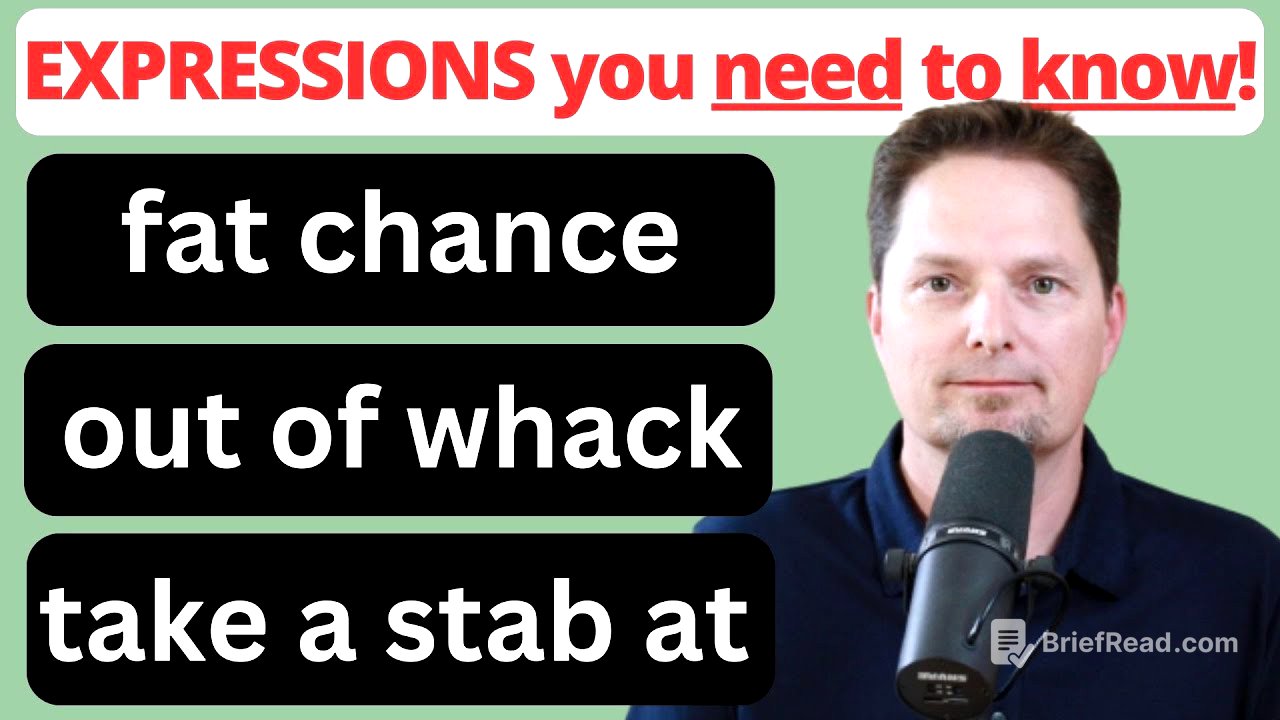TLDR;
This video from "English for Everyone" explains three common American English expressions: "fat chance," "out of whack," and "take a stab at something." It clarifies their meanings, provides examples, and offers pronunciation tips.
- "Fat chance" means something is unlikely to happen.
- "Out of whack" describes something that is not right or out of balance.
- "Take a stab at something" means to try something new or unfamiliar.
Fat Chance [0:08]
The expression "fat chance" is explored, which means there is very little chance of something happening; it's not likely and probably won't occur. It's used alone, without preceding phrases like "there's a." Examples of its usage are provided, including "fat chance of that happening" or "fat chance of that." The speaker illustrates the meaning by asking if they could become president of the United States, to which the response would be "fat chance," indicating it's improbable.
Out of Whack [1:25]
The meaning of "out of whack" is explained as when something is not right, mixed up, out of balance, or not lined up correctly. It's used with the verb "to be," as in "something is out of whack." The pronunciation is discussed, noting that the 't' in "out of" changes to a fast 'd', sounding like "out of," and the 'v' sound may or may not be pronounced. An example is given of someone with an irregular sleep schedule, where "her sleep schedule is out of whack." The verb "throw" can be used to indicate what caused something to be out of whack, such as "staying up all night threw her sleep schedule out of whack." Another example illustrates someone who lives in a dangerous neighbourhood but spends money on a new car, indicating "his priorities are out of whack."
Take a Stab At Something [4:45]
The expression "take a stab at something" is examined, clarifying that while "stab" is normally a verb, the expression means trying something, especially something unfamiliar. An example is given of someone who has never written a poem but is going to try for a contest, so "she's going to take a stab at it." Pronunciation tips are provided, such as the 't' in "at" becoming a fast 'd' and the 't' in "it" being a stop 't'. If using a verb after "take a stab at," a gerund is needed, like "she's going to take a stab at writing a poem." The lesson then reverts to the standard verb "stab" for practice, including past tense ("stabbed") and passive voice ("was stabbed").









